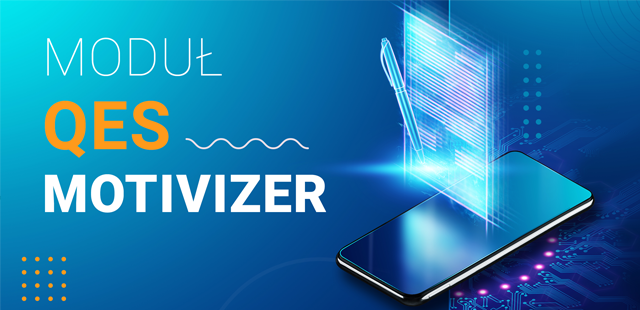The new QES Module (qualified electronic signature module)

Motivizer has introduced a new solution for our Customers. The new QES Module (qualified electronic signature module) from Motivizer will allow for a simple way to completely move away from paper document flow in any company.
Qualified electronic signature in your company with Motivizer
QES – New Module for Motivizer System
Since the outbreak of the global pandemic, more and more employers are opting for a hybrid or completely remote work system. In this case, many entrepreneurs have started implementing an electronic document circulation system. A key element of this is the implementation of a module that allows for signing documents with a qualified electronic signature.
Motivizer is constantly developing its support and digitalization system for Human Resources departments to meet the changing requirements of employers. Our new QES module from Motivizer is compliant with the eIDAS regulation* which guarantees security and full compliance with European Union law**. This means that documents signed with Motivizer’s tool are accepted in any member country. You can also sign documents that require written form under penalty of nullity (e.g. employment contract, all agreements transferring copyright property rights, account management contract, leasing contract or general power of attorney). A qualified signature is also often required by state and local government authorities.
What is a qualified signature and how does it differ from an electronic signature?
A qualified signature is an electronic signature that has legal power as a hand-written signature. It is certified by a special qualified certificate that allows for the verification of the person signing. Only the person to whom the signature and certificate are assigned can use it. With a qualified signature, you can sign any document and, unlike a trusted profile, a qualified signature can not only be used to handle official matters but also, among other things, conclude distance agreements or handle all matters between employee and employer without the need for a physical meeting – which is particularly important during a time when remote work is becoming increasingly popular.
What is particularly important, the document with a qualified electronic signature, according to the provisions of the Polish Civil Code, has the same legal power as a handwritten signature. Read more about what a qualified electronic signature is for HR departments.
All about the QES Module – qualified electronic signature
How does the QES Module from Motivizer work?
After implementation of the new module, the user will only need to have a valid identity document, a smartphone, and internet access. After launching the module, it is enough to add a prepared PDF document and select a signature. In the next step, there will be a video connection for verification (at that time, the identity document will have to be presented). If the verification is successful, the user will receive a text message with a code to confirm the addition of the signature.
A very important functionality is the possibility of signing a document by multiple people. In the system, it is enough to add email addresses of other users and establish the order of signatories.
What is eIDAS?
The eIDAS (electronic IDentification, Authentication and trust Services) acronym stands for the regulation of the European Parliament and Council (EU) No. 910/2014 of 23 July 2014 on electronic identification and trust services for electronic transactions in the internal market. The document applies throughout the European Union from July 1, 2016 and is directly applied in Polish legal order. The purpose of the eIDAS regulation is to increase trust in electronic transactions through legal frameworks that guarantee their safety at the European level.
What is a qualified signature in the light of the eIDAS regulation?
The eIDAS regulation also defines what is called a qualified signature, which is a special form of advanced electronic signature. Article 26 of the document states that “an advanced electronic signature must meet the following requirements:
a) it is uniquely linked to the signatory;
b) it allows identification of the signatory;
c) it is placed using data for electronic signature that the signatory can use, with a high degree of certainty, under their exclusive control; and
d) it is linked to the data signed in such a way that any subsequent changes to the data are detectable.”
Additionally, a qualified electronic signature is submitted using a qualified signature creation device and is based on a qualified electronic signature certificate (Article 13, point 12). The certificate is issued for a specified time period exclusively by qualified trust service providers, after verifying the identity of the person applying for it. Similarly to a “regular” electronic signature, qualified signatures can also be obtained completely online – thanks to video verification.
Due to the additional requirements that it must meet, the qualified signature has a wider range of applications than other electronic signatures. According to eIDAS, “a qualified electronic signature has the same legal effect as a hand-written signature” (Article 25, point 2).
Recent Posts:
- Capital24.tv Debate with Piotr Dubno – “Economy, Innovation, Investments. What Changes Await Us?
- The future of HR – what will be the key to organizational success?
- Are you keeping up with the idea of a modern workplace?
- Burnout, how can an employer help an employee?
- Digitalization of HR is key to unlocking the full potential of an organization

